Buying Guide for the Best Generac Portable Generators
Choosing the right Generac portable generator involves understanding your power needs and the features that will best suit your usage. Portable generators are versatile tools that can provide electricity during power outages, for outdoor events, or on job sites. To make an informed decision, you need to consider several key specifications that will determine the generator's performance and suitability for your specific requirements.Power Output (Wattage)Power output, measured in watts, indicates how much electricity the generator can produce. This is crucial because it determines what and how many devices you can power simultaneously. Generators typically range from 1,000 to 10,000 watts. For light use, such as camping or running small appliances, a generator with 1,000 to 3,000 watts is sufficient. For home backup during outages, you might need 3,000 to 6,000 watts. For heavy-duty use, like powering multiple large appliances or tools, look for 6,000 watts or more. Assess your power needs by listing the devices you plan to run and their wattage requirements.
Fuel TypePortable generators can run on various fuels, including gasoline, propane, and diesel. Gasoline is the most common and widely available, but it has a shorter shelf life and can be less efficient. Propane is cleaner and has a longer shelf life, but it requires a separate tank. Diesel is more efficient and has a longer engine life, but diesel generators are typically more expensive and heavier. Choose the fuel type based on availability, storage, and your specific needs. For occasional use, gasoline might be convenient, while for frequent or long-term use, propane or diesel could be more practical.
Run TimeRun time refers to how long the generator can operate on a full tank of fuel. This is important for planning how often you will need to refuel, especially during extended power outages or long events. Generators with larger fuel tanks generally have longer run times. For example, a generator with a 5-gallon tank might run for 8-12 hours at 50% load. If you need continuous power for long periods, look for a generator with a longer run time to minimize refueling interruptions. Consider your typical usage duration and choose a generator that can meet those needs without frequent refueling.
PortabilityPortability is determined by the generator's weight, size, and design features like wheels and handles. This is important if you need to move the generator frequently or transport it to different locations. Lightweight generators (under 50 pounds) are easy to carry and ideal for camping or tailgating. Medium-weight generators (50-100 pounds) often come with wheels and handles, making them suitable for home use or job sites. Heavy-duty generators (over 100 pounds) are more powerful but require more effort to move. Consider how and where you will use the generator and choose one that you can easily transport and maneuver.
Noise LevelNoise level, measured in decibels (dB), indicates how loud the generator will be during operation. This is important for comfort and compliance with noise regulations, especially in residential areas or campsites. Generators typically range from 50 dB (quiet) to 90 dB (loud). For quiet environments, such as camping or home use, look for generators with noise levels under 60 dB. For construction sites or areas where noise is less of a concern, higher noise levels might be acceptable. Consider where you will use the generator and choose one with a noise level that won't be disruptive.
Starting MechanismGenerators can have different starting mechanisms, including manual recoil start, electric start, and remote start. Manual recoil start requires pulling a cord, which can be physically demanding. Electric start uses a battery to start the generator with the push of a button, offering convenience and ease of use. Remote start allows you to start the generator from a distance using a remote control. Choose the starting mechanism based on your preference for convenience and ease of use. If you prefer simplicity and don't mind a bit of physical effort, a recoil start might be sufficient. For maximum convenience, especially for frequent use, consider an electric or remote start.

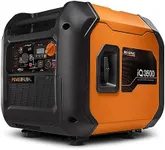
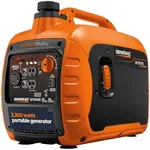
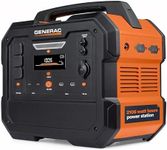
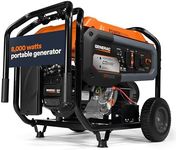
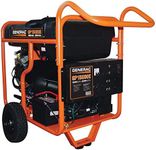
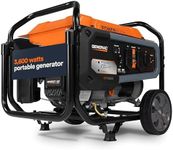
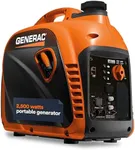

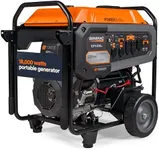


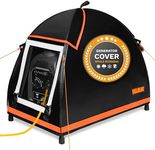
![[Upgraded Version] ALLPOWERS S2000 Portable Power Station 2000W (Peak 4000W) MPPT Solar Generator 1500Wh Backup Battery with 4 AC Outlets for Outdoor Camping RV Emergency Off-Grid](https://images-proxy.bestreviews.guide/RKciUpoEpXP6FG5NDwMBUKV-gKk=/0x150/https://m.media-amazon.com/images/I/51n9OTptdIL._AC_CX679_.jpg)





